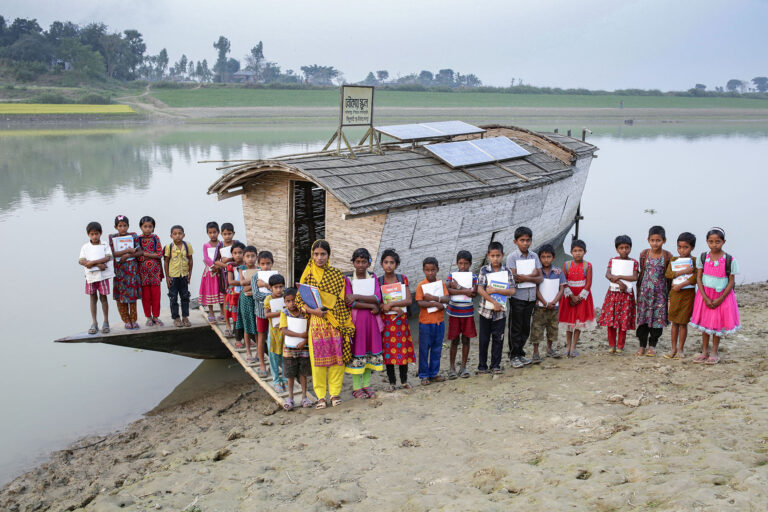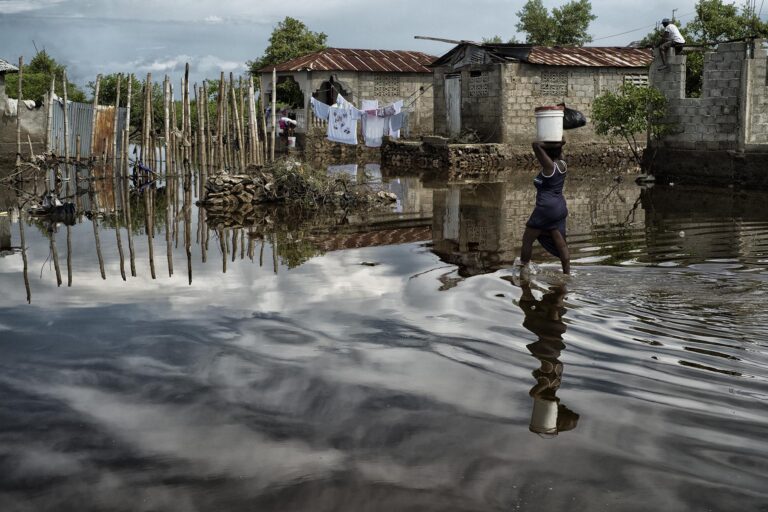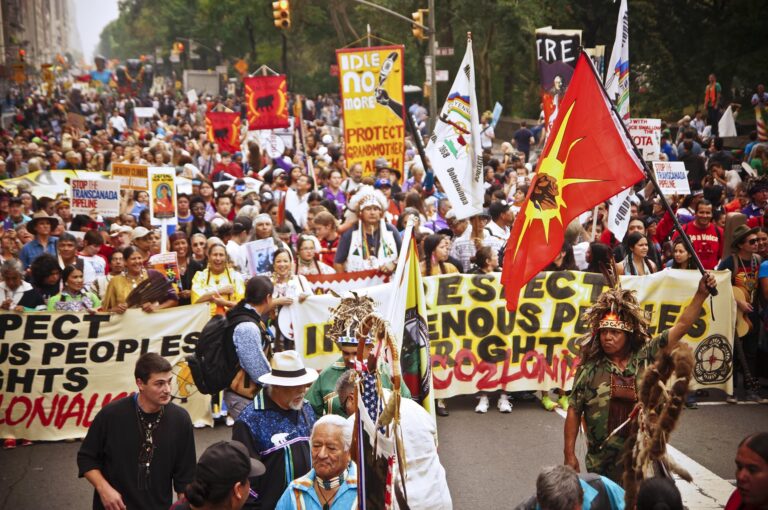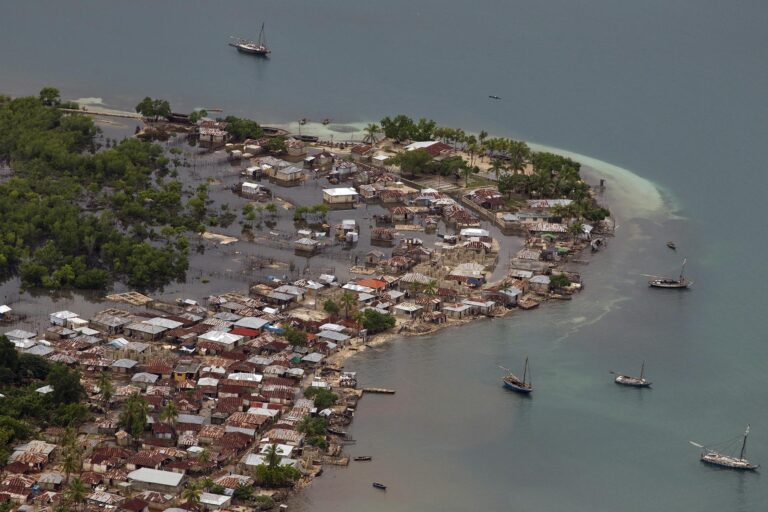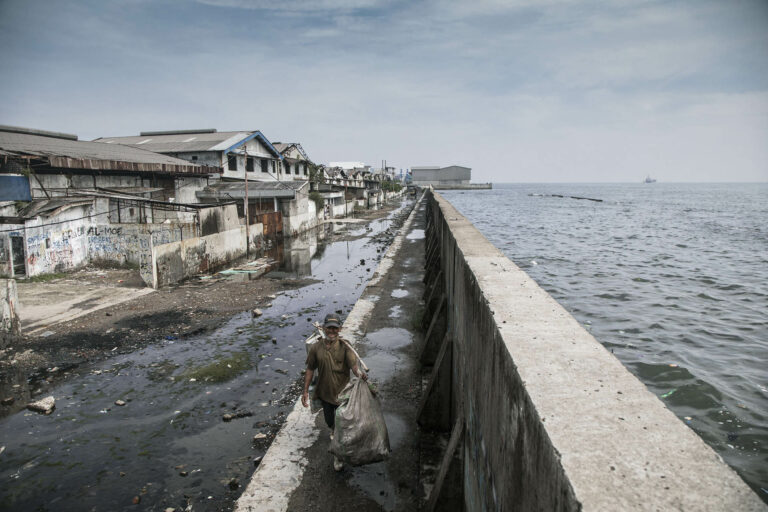In order to reach global climate goals, oil and gas production and consumption...Read More
In response to the threats posed by climate change, including its foreseeable significant adverse impacts on human rights, many countries have adopted laws and regulations designed to combat climate change and promote respect for human rights.
More than 100 countries have enacted legislation establishing a right to a healthy environment. Many countries have also enacted other legislation relating to the environment and climate change, including legislation formalizing their commitments pursuant to the Paris Agreement and subsequent meetings of the Conference of the Parties (COP). For example, Nigeria’s Climate Change Act, passed in 2021, requires the Federal Ministry responsible for Environment to set a carbon budget for Nigeria to keep average increases in global temperature within 2°C and pursue efforts to limit the temperature increase to 1.5°C above pre-industrial levels. The United Kingdom’s Climate Change Act 2008 commits the UK government by law to reducing greenhouse gas emissions by at least 100% of 1990 levels (net zero) by 2050.
Some countries have enacted due diligence laws that impose varying obligations on companies to identify and, in some cases, mitigate and redress, human rights and/or environmental impacts in their supply chains. In 2017 France passed a new corporate duty of vigilance law, imposing a legally binding obligation on large parent companies to identify, prevent, mitigate and redress human rights and environmental impacts resulting from their own activities as well as from the operations of companies under their control, subcontractors and suppliers. The law requires the parent company to publish and implement a detailed vigilance plan or account for the failure to do so.
Germany and Norway have also enacted supply chain due diligence laws, and similar laws have been proposed in the Netherlands, Switzerland and elsewhere. The German Supply Chain Due Diligence Act, which applies to companies with their central administration, principal place of business, administrative headquarters, statutory seat, or a branch office in Germany, came into force in January 2023 for companies with at least 3,000 employees and in 2024 for companies with at least 1,000 employees. The Act requires companies to analyze, prevent, and mitigate specified human rights and environmental risks in their operations and those of their direct suppliers. Companies must also take remedial action with respect to indirect suppliers if they have substantiated knowledge of a risk of human rights or environmental harms caused by that supplier.
Norway’s Transparency Act, which applies to companies registered in Norway greater than a specified size, and foreign companies greater than a specified size that provide goods or services in Norway and are required to pay Norwegian taxes, came into force in July 2022. Covered companies are required to carry out due diligence in accordance with the OECD Guidelines for Multinational Enterprises. This includes identifying and assessing “actual and potential adverse impacts on fundamental human rights and decent working conditions either caused or contributed toward, or that are directly linked with the enterprise’s operations, products or services via the supply chain or business partners,” and mitigation of any such impacts.
In 2023, the European Union adopted a due diligence directive that requires businesses to report on their efforts to meet the Paris Agreement’s mitigation objectives, and to report on their due diligence into potential or adverse human rights impacts in their supply chains and any actions taken to mitigate those impacts. The EU is considering another directive that would require companies to take affirmative actions to mitigate greenhouse gas emissions and adverse human rights impacts in their full supply chains, or face penalties for failure to do so.
Several of these laws explicitly envision civil society, including non-governmental organizations focused on climate change and/or human rights, playing an active role in ensuring compliance and affirmative action by covered businesses. This will provide NGOs the potential for effective advocacy, facilitated by binding domestic legal mechanisms, to promote private sector action to combat climate change and its adverse human rights impacts.
Photo Credit: Container ship in the Port of Hamburg. Germany is one of the countries with the strongest supply chain due diligence laws, requiring companies to analyze, prevent, and mitigate specified human rights and environmental risks in their operations and direct suppliers. Photo by Aschroet via Wikimedia Commons (CC0).
More reading...
Governments have a duty to ensure that the right to education is respected,...Read More
Under the International Covenant on Economic, Social and Cultural Rights (ICESCR), everyone has...Read More
The right to speak freely about the impact of climate change and to...Read More
The Paris Agreement established the goal of increasing “the ability to adapt to...Read More


